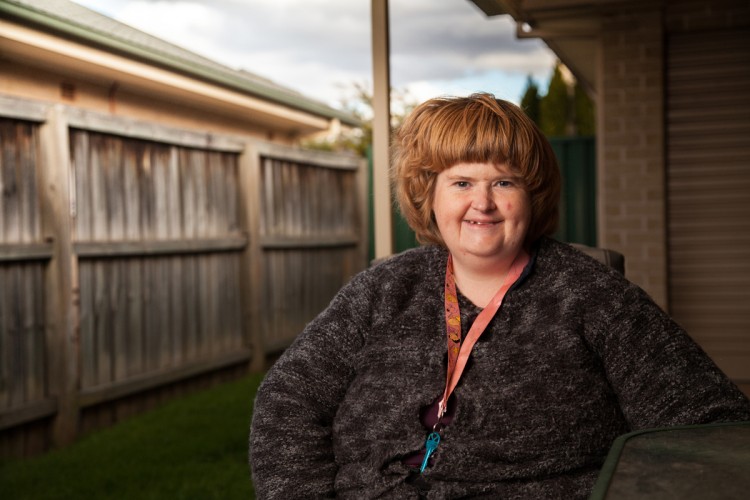Prader-Willi syndrome is a genetic disorder affecting chromosome 15. Not all people with Prader-Willi syndrome will have the same characteristics, however some traits can include chronic hunger and an obsession with food, obesity, low muscle tone, learning difficulties, and a short stature.
It was hard work for my parents when I was young. Having a child with special needs was a bit daunting at times, and it was an emotional strain for them to try and fit me into a “normal life” in “normal society.”
I was basically a loner at school. I kept to myself. At lunch instead of being outside with the other kids, I would go to the library and read a book.
I loved learning and I loved school, but I hated the kids there. I did have some friends, but I found school very hard.
I had one friend through primary school who would always stick up for me. She would say to the others, “Kate’s just like us, treat her with respect. Why don’t you just get to know the person on the inside?” We’re still friends to this day!
In primary school, I began to put on weight and the names I was called I don’t want to repeat. I coped with the bullying through food, comfort food, meaning not-so-good food. Chocolate bars, doughnuts and all that kind of thing.
A lot of teenagers these days commit suicide because of bullying. I have tried that. When it got very difficult I thought, can I do this? Can I end it? I was in grade five. Years five and six were when the bullying got bad. I was pre-adolescent and my weight had become more noticeable.
Growing up there weren’t many treatment options, so I just had to try really hard not to eat, and to exercise as much as I could.
Food is always hard for me. People with Prader-Willi syndrome have an unsatisfied hunger, meaning they always feel hungry. They don’t have the signal that comes from the brain, the lightbulb going on saying, “Hey, you’re full!”
It’s also much harder for people with Prader-Willi syndrome to lose weight as we have low muscle tone, so it’s difficult to move around and get our muscles to work.
Growing up, my brother and sister had to be OK living in a house where there were no chocolate bars, biscuits or sweets because I couldn’t have them, or have them around me.
At times people with Prader-Willi syndrome can become desperate for food.
I have eaten out of bins before. And being around food in shopping centers is very hard. I have to admit, I have stolen food from shops when I didn’t have any money, but thankfully people have been understanding at those times.
Before I moved into my current home, I lived alone which meant I had a lot of time to go to the neighbors to get extra food, or down to the shops. It was at this stage in my life that my weight increased, and my health started to suffer. I then decided I had to do something or I would end up six feet under.
This is when I decided to move to a House with No Steps group home to give me the structure that I needed. Since moving in two years ago, I have lost 45 kilograms (99 pounds). Each day I do cycling in the morning, cycling in the afternoon, as well as walking throughout the day.
I now have caregivers that manage my meals for me. If the temptation is taken away, it’s much easier. I don’t go into the kitchen — it’s a no-go zone. I need this structure around food, to live in an environment where there is no temptation.
It is a lot harder to live with Prader-Willi syndrome than people realize. The food and weight is hard, but it’s also hard to make friends and to keep friends.
I hope one day to be able to go to schools and share my experiences with the students to raise awareness of Prader-Willi syndrome and the damage that bullying can cause.
A lot of people who have Prader-Willi syndrome do not feel comfortable talking about it, but I want to share my experiences so people can understand. People should never judge a book by its cover, but instead get to know the person on the inside.

If you or someone you know needs help, please visit the National Suicide Prevention Lifeline. You can also reach the Crisis Text Line by texting “START” to 741-741. Head here for a list of crisis centers around the world.
The Crisis Text Line is looking for volunteers! If you’re interesting in becoming a Crisis Counselor, you can learn more information here.
The Mighty is asking the following: What’s one thing people might not know about your experience with disability, disease or mental illness, and what would you say to teach them? If you’d like to participate, please send a blog post to community@themighty.com. Please include a photo for the piece, a photo of yourself and 1-2 sentence bio. Check out our Submit a Story page for more about our submission guidelines.
